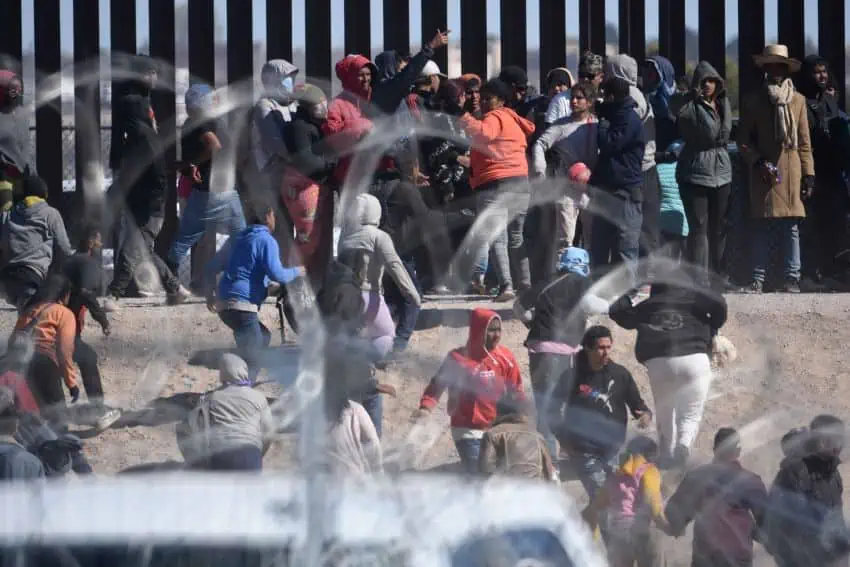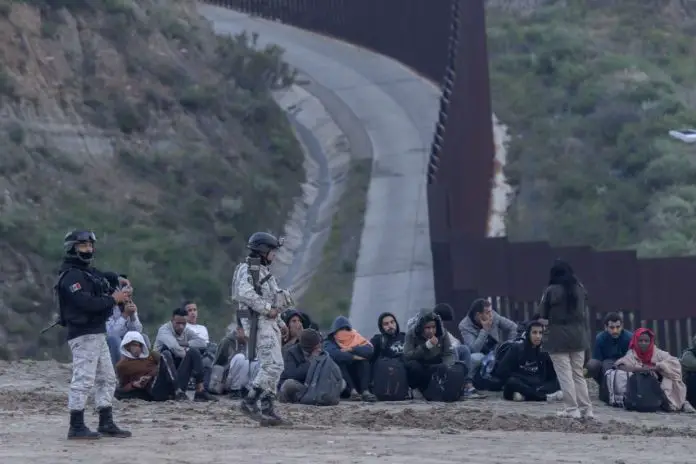Migrant detentions in Mexico are on the rise, even as violence at both the southern and northern borders makes the trek to the United States increasingly fraught with danger.
As a new migrant caravan left Chiapas this week, the Interior Ministry (Segob) reported that the number of migrants detained in Mexico during the first two months of 2024 was up 218% over the same period a year ago.

During January and February of 2023, Mexican authorities apprehended 75,401 migrants; this year, 239,948 migrants were detained during the same period. This year’s total is the highest for January-February since 2018, reported newspaper El Economista.
Segob data shows that most of the undocumented migrants taken into custody by immigration authorities were Venezuelan nationals (56,312), followed by Guatemalans (28,250) and Hondurans (25,924).
Nearly half of the migrant detentions tallied by Segob (109,677) took place in the southern Gulf Coast state of Tabasco, with another 71,510 recorded in the state of Chiapas, which borders Guatemala.
On Thursday, the Washington Office on Latin America (WOLA), a human rights NGO, also issued a report that called out the violence migrants face when they reach Mexico’s northern border.

WOLA interviewed personnel at migrant shelters and its findings revealed that upon reaching the border state of Tamaulipas, migrants and asylum applicants are subject to systematic kidnapping, sexual violence and physical as well as psychological abuse by drug cartels that have branched out into human trafficking.
The crime gangs intercept buses filled with migrants and kidnap them from shelters and campsites, extorting the victims and their families back home. Most disturbingly, the WOLA report included testimony alleging official complicity in the abuse that migrants suffer. That complicity takes both active forms — the organization reports having heard stories of state police “selling” migrants to cartels — and passive ones, such as authorities failing to react to or investigate migrant kidnappings, “sometimes responding to calls for help with silence or refusals.”
Violence at the southern border is also a concern. Late last month, a video of a confrontation between an immigration officer and migrants wielding sticks to avoid being detained went viral. The immigration officer and a National Guard (GN) contingent were attempting to apprehend members of a caravan traveling along the Costera highway in Mapastepec, Chiapas.
Witnesses told the newspaper La Silla Rota that more than 100 migrants were detained and their whereabouts have since been unknown, an incident that activists say illustrates the lack of respect for human rights of migrants in Mexico.
Also last month, the newspaper El País reported that the latest caravan of migrants was heading north from the city of Tapachula, Chiapas, fleeing cartel-related violence.
El País reported that Tapachula is besieged by rival criminal gangs battling over control of the drug trade and human trafficking routes, prompting a spike in kidnappings and murders.
Violence across Chiapas has been on the rise since the Jalisco New Generation Cartel began challenging the Sinaloa Cartel’s dominance in the state.
With reports from El Economista, El País and La Silla Rota
